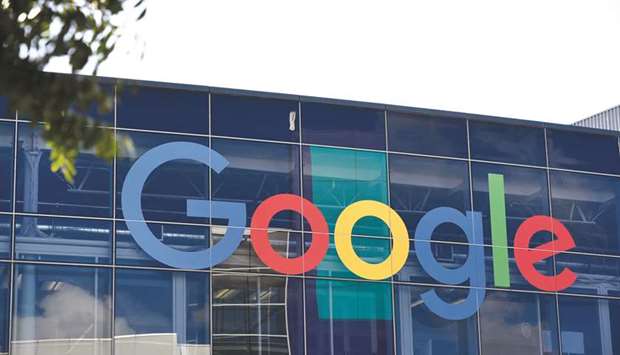The US Supreme Court asked the Trump administration for its views on Oracle Corp’s bid to force Alphabet Inc’s Google to pay at least $8bn in royalties over programming code in the Android operating system.
Google is challenging an appeals court ruling that it violated Oracle copyrights when it included some Oracle-owned Java programming code in Android, the dominant operating system in mobile devices.
The dispute between the two tech giants has split Silicon Valley for almost a decade, pitting developers of software code against companies that use the code to create programs in what they contend is a “fair use” exception to copyright law. A federal jury ruled that Google’s copying of the code was excused by fair use, but an appeals court reversed that finding.
The justices asked US Solicitor General Noel Francisco’s advice on whether they should hear Google’s appeal.
At issue are pre-written directions known as application program interfaces, or APIs, which can work across different types of devices and provide the instructions for functions such as connecting to the Internet or accessing certain types of files. By using those shortcuts, programmers don’t have to write new code from scratch for every function in their software or change it for every type of device.
The Java programming language, developed by Sun Microsystems before Oracle bought the company in 2010, lets developers write programs under what it called “write once, run anywhere.”
Google said Sun “originally applauded Google for using the Java language,” but that Oracle filed the court challenge after buying Sun.
Google is asking the Supreme Court to decide whether the pre-written code is eligible for copyright protection and, if so, whether it can nonetheless be used without a license when creating a new computer program.
This is the second time the case has reached the high court. In 2015, the Supreme Court refused to hear an appeal of a ruling that the software could be copyrighted.
In the latest appeal, Google’s lawyers told the Supreme Court that while some forms of computer code are entitled to copyright protection, the decisions in Oracle’s favour by the US Court of Appeals for the Federal Circuit were a “devastating one-two punch at the software industry.”
“If allowed to stand, the Federal Circuit’s approach will upend the longstanding expectation of software developers that they are free to use existing software interfaces to build new computer programs,” Google said. Developers won’t be able to use free languages like Java to create programs, it said, “a result that will undermine both competition and innovation.”
Oracle said its APIs are freely available to those who want to build applications that run on computers and mobile devices, but that the company demands a license for use of the shortcuts for a competing platform or to embed them in an electronic device.
According to Oracle, Google was facing an “existential threat” because its search engine – the source of the advertising revenue that underpins the company – wasn’t being used on smartphones. Google bought the Android mobile operating system in 2005 and copied Java code to attract developers but refused to take a licence, Oracle contends. Android generated $42bn for Google between 2007 and 2016, according to Oracle court filings.
“Google also undermined ‘write once, run anywhere’ by deliberately making Android incompatible with the Java platform, meaning Android apps run only on Android devices and Java apps do not run on Android devices,” Oracle said. “In short, Android ‘replaced’ Java and ‘prevented’ Oracle from licensing and competing in the developing smartphone market.”
Microsoft Corp, Mozilla Corp and Red Hat Inc supported Google’s petition. Red Hat said that, while some software should be copyrighted, the broad ruling by the Federal Circuit had created “uncertainty and fear” in the software development community.
The appeals court decision on fair use “grants functional code the same level of copyright protection as creative expression in a novel,” Microsoft said in a filing with the court.

The Google signage is displayed inside the Googleplex headquarters in Mountain View, California. Google is challenging an appeals court ruling that it violated Oracle copyrights when it included some Oracle-owned Java programming code in Android, the dominant operating system in mobile devices.
